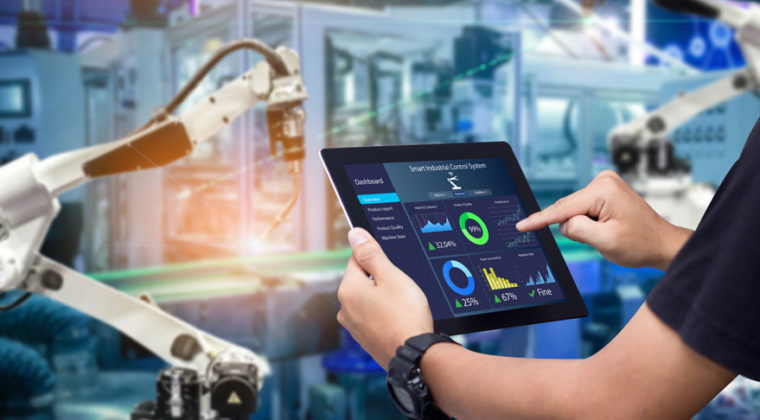
Manufacturing software is used to increase efficiencies, automate operations and increase turnover . The software facilitates such services as: shop floor data collection, manufacturing process control, inventory control, and maintenance management. There are many different types of manufacturing support software, which is what we will be looking at in this article.
Enterprise Resource Planning
Enterprise Resource Planning is designed to aid in manufacturing management and oversee the main business operations in order to streamline information across the organization as a whole. It can be used with, and between, any department such as HR, logistics, sales, and any others. ERPs like Netsuite handle large quantities of projects at a time and include features like email marketing, customer help desks, pricing forecasts, financial management, marketing automation, etc. Netsuite, and other ERPs, are a more expensive, more robust system than a Manufacturing Resource Planning software, which you’re about to read about.
Manufacturing Resource Planning II
Manufacturing Resource Planning (MRP II) is designed for production management. It’s created to manage manufacturing business operations like scheduling, materials control, planning, and more. This software is designed solely for the manufacturing department of the business. Given it is less robust than ERP, it usually handles smaller projects and is an overall simpler software. MRP II and other MRP software is a manufacturing solution that does not include any customer-facing features and usually comes as a feature within an ERP system.
Process Control Software (PCS)
This type of manufacturing software is used wherever there is continuous production in manufacturing such as; batch processing. PCS is designed to prioritize a higher quality and efficiency of production. Take industries such as water, gas, oil where systems are required to ensure a continuous and reliable level of flow through process control software by remote monitoring and management of the pipeline data from the control centre and streaming real-time data and ensuring a constant operation.
Product Lifecycle Management (PLM)
PLM software is a solution that manages all of the information and processes at every step of a product or service lifecycle across globalized supply chains. This includes the data from items, parts, products, documents, requirements, engineering change orders, and quality workflows. PLM began with early product development solutions before becoming a software, which was initially introduced with features, to help support many functions throughout the product lifecycle including quality planning, manufacturing, product compliance, product costing and so on. Today’s PLM 4.0 enables businesses to establish and monitor a digital thread via the Internet of Things, product, factory and customers. Having access to this information from anywhere, at any time from cloud access. Thus avoiding the complexities of gathering data across supply networks. The benefits of incorporating such software enhances decision-making, increases innovation and improves processes, reduced costs, and enhanced product quality.
Source inspired from propelplm.com/blog/what-is-manufacturing-software
For more information on how Ti2 can help your organisation, please do contact us.
